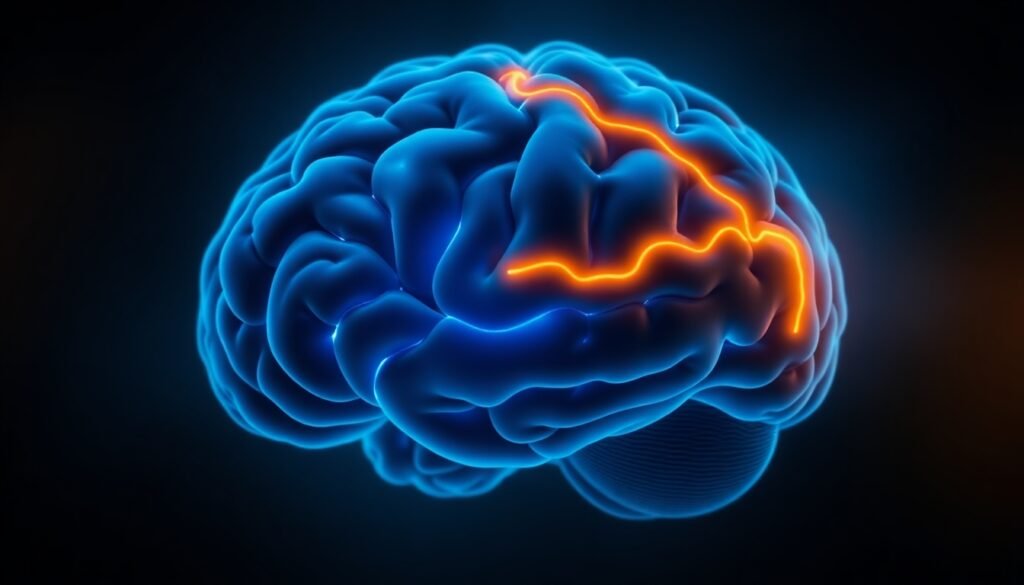A new study reveals that a song’s energy and acoustic qualities can predict the emotional tone and vividness of the memories it triggers, offering new insights into the powerful link between sound and self.
It’s a universal experience. A few notes from a long-forgotten song drift from a passing car or a café speaker, and instantly, you are no longer there. You are transported back in time to a high school dance, a lazy summer afternoon in your childhood backyard, or a quiet moment with a loved one. Music’s power to unlock our past is one of its most magical and mysterious qualities. But is this process random, or do the specific characteristics of the music itself play a role in shaping the memories that surface?
A groundbreaking study from researchers at Goldsmiths University of London provides a compelling answer. Published in the journal PLOS One, the research demonstrates that the auditory features of a song—its energy, tempo, and acoustic nature—are directly linked to the emotional content and qualities of the autobiographical memories it evokes. The findings not only deepen our understanding of the intricate relationship between music, emotion, and memory but also open new doors for therapeutic applications.
To investigate this connection, researchers Safiyyah Nawaz and Diana Omigie designed an online study involving 233 participants. Each person was asked to identify a song that personally triggered a memory and describe it in detail. They were also presented with excerpts of popular songs from their childhood and early adulthood and asked to do the same for any memories that emerged. Using the Spotify Web API to extract the musical features of each song, the team then employed sophisticated statistical analysis to map the qualities of the music to the qualities of the memories.
The results revealed two distinct patterns.
The Soundtrack to Calmness and Complexity
The first pattern involved songs characterized by low energy and high acousticness—think of the gentle, flowing melody of Debussy’s “Clair de Lune.” When participants recalled memories triggered by this type of music, the memories were consistently imbued with a specific emotional palette. They were often described with feelings of calmness, romance, sadness, and aesthetic appreciation.
Beyond the emotional tone, the nature of these memories was also distinct. They were reported to be more vivid, unique, and personally important. Interestingly, these memories tended to be less social, pointing to moments of introspection or intimate, personal reflection. It seems that softer, more acoustic music is a key that unlocks our more profound and complex inner worlds.

The Beat of Excitement and Social Fun
On the other side of the sonic spectrum are the high-energy, less acoustic tracks—the kind of polished, driving beats you might hear in a song like Fetty Wap’s “Trap Queen.” The study found that this music tells a very different memory story. Memories evoked by these energetic songs were overwhelmingly social and filled with feelings of amusement, excitement, and fun.
These weren’t just different in emotional content; they were also accessed differently. Participants recalled these high-energy memories more quickly, suggesting that upbeat, produced music is linked to more accessible, action-oriented moments of our lives, often shared with others.
As lead author Safiyyah Nawaz explains, “We discovered that more acoustic songs were associated with memories that were more vivid, unique, and characterized by complex emotions like romance and adoration, whereas louder, more energetic songs were linked to social, exciting, high-energy memories that were recalled faster.”
The “My Song” Phenomenon: Why Personal Playlists Matter Most
One of the most significant findings of the study was the powerful distinction between memories triggered by self-selected songs versus those evoked by generic popular hits. When participants listened to a song they had chosen themselves—a track holding personal significance—the resulting memories were far more potent. They were more specific, vivid, positive, unique, and important than those triggered by the provided popular excerpts.
This highlights a crucial element in the music-memory equation: personal connection. Co-author Diana Omigie notes, “Our in-depth analysis showed that it’s not just the musical features that influence memory, but also how much a person likes a song and how familiar it is to them.” This suggests that our emotional investment in a piece of music acts as a powerful amplifier, strengthening its ability to encode and retrieve deeply meaningful moments from our lives.
From Research to Real-World Application
The implications of this research extend far beyond academic curiosity. Understanding how specific musical features can target different types of memories has profound potential for clinical applications, particularly in reminiscence therapy for individuals with memory impairment conditions like Alzheimer’s disease.
By curating playlists with specific acoustic and energetic profiles, therapists could potentially help individuals access different parts of their past more effectively. A playlist of calm, acoustic songs might be used to evoke vivid, personal moments to help reinforce a sense of self, while an energetic playlist could be used to stimulate memories of social connection and joy.
The research process itself was a moving experience for the scientists. “We collected and analyzed over 1,400 musical memories, a process that was as humbling as it was thought-provoking,” shares Nawaz. “I saw how each song carries as many moments of life as there are listeners of that song.”
Inspired by this, the team has begun building an online archive at memoryrecords.xyz, where some of the anonymized memories from the study can be read. The project aims to create a diverse, global collection of musical memories, celebrating the unique stories embedded in the songs we love.
Ultimately, this study confirms what many of us have intuitively felt: the music that accompanies our lives is not just background noise. It is an active architect of our memories, its very structure—the energy, the instrumentation, the rhythm—shaping how we remember, what we remember, and how it makes us feel. Our personal soundtracks are, in a very real sense, the keepers of our story.
Reference
Nawaz, S., & Omigie, D. (2025). Qualities of music-evoked autobiographical memories are associated with auditory features of the memory-evoking music. PLOS ONE.




